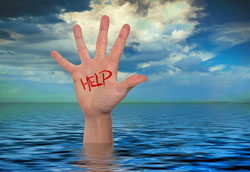Bullying of Children and Adolescents
What is bullying
Unfortunately statistics reveal that bullying is a growing problem among children and teenagers despite schools having anti–bullying policies. It is important to know what constitutes ”bullying” as this is a word that is often used to describe a one off experience. Most children will say they have been bullied and it is important to explore what they mean by this.
 Three criteria characterise bullying:
Three criteria characterise bullying:
- the bully having the intent of harming or hurting someone
- an imbalance of power
- bullying behaviour that is repetitive and habitual
There are four major types of bullying:
- verbal
- emotional
- physical
- cyber bullying
Bullying behaviours include a whole range of actions including threats, put downs, harrassment, spreading rumours, physical abuse, verbal abuse, exclusion and more.
Effects of bullying
If your child is being repeatedly and intentionally bullied by one or more people who have power over your child you need to take action to ensure it stops. A young person can not begin to recover from the negative effects of bullying if it is still going on.
When children or teenagers are frequent victims of bullying it can have wide ranging negative effects on their well being. Things like: skipping school, loneliness, isolation, depression, anxiety, feeling powerless, poor self esteem, changes in sleep and eating, unmotivated, loss of interest in school, decline in school grades and poor concentration.
Some children who are repeatedly bullied become angry, disruptive and even aggressive and sometimes these children start bullying other children. If your child is a bully it is important to get help for your child. It is unlikely that he/she is happy and it will certainly be negatively impacting on his/her relationships as well as other aspects of his/her life.
Sometimes children will hide the full extent of their bullying experiences, minimise the frequency and mask how it is effecting them. This is usually because bullying causes shame, lowers a persons self esteem and can make people feel like they are bad and unworthy. Take the time to talk to your child and find out how much it is impacting on every day life.
Recovery from bullying
For children who are not recovering from the effects of bullying after it has stopped it is helpful to get some counselling. This will prevent them having long-term emotional and psychological damage which can last into adulthood and negatively effect their relationships. It is really important to make sure children do not feel worthless and bad about themselves which in turn can lead to the development of a victim mentality.
Through counselling children can build resilience, learn strategies and build confidence and assertiveness. It is a proven fact that children who are self assured, confident and have high self esteem are unlikely to be victims of bullying.
See also Angry kids, Anxiety in children, Autism & Asperger's, Behaviour problems, Blended families, Self-harm, or Teenage depression
